

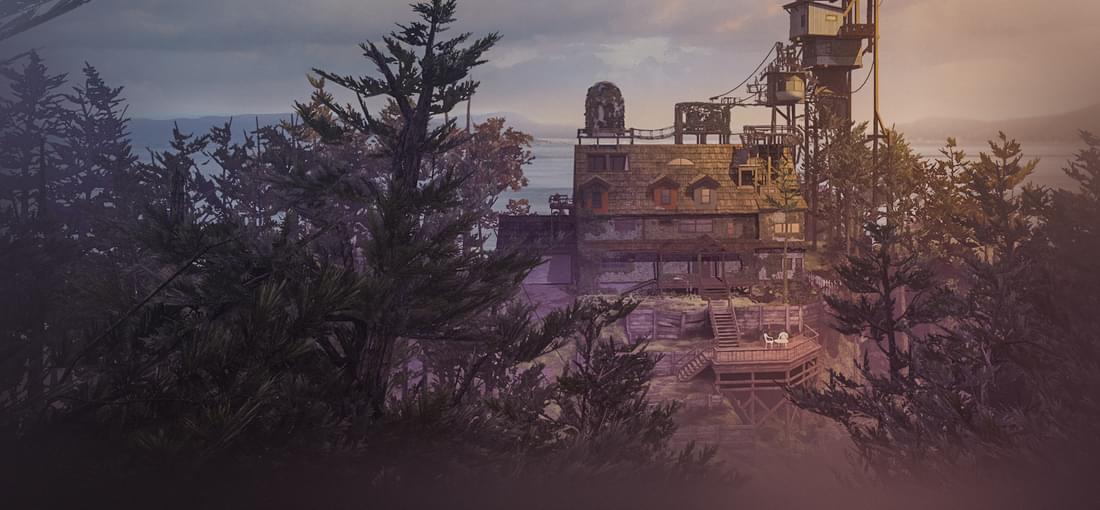
A young woman returns to an abandoned house trying to discover what happened to her family. Sound familiar? Finch sticks close to the genre convention of exploring a mostly linear environment and finding documents and objects to piece together a story. However, with the fate of each family member presented as a separate mostly interactive experience, the abandoned house, in itself a cool and quirky place rich with environmental narration, soon becomes a sort of overworld to a dozen highly varied minigames that take this above and beyond your typical walking sim. Of course, the magical realism of its narrative, with an ancient family curse and all, allows for flights of fancy, as well as shortcuts and omissions, that wouldn't be acceptable in more down-to-earth games like Gone Home (2013) or Firewatch (2017), so any direct comparison could hardly be fair. In a 2017 Gamespot interview, creative director Ian Dallas explained that they basically cobbled together prototypes that they felt captured the sublime beauty and intense emotion of characters facing their deaths (somewhat twisting his words here), so don't expect super nuanced characterisations or perfect verisimilitude. Still, while I did cry my eyes out first playing this in 2018, Finch neither wants nor needs your empathy. It's not about people per se, it's about the unique shiver you get from things coming to a close, the one thing that never fails to affirm the continuity of life going on. Each individual death in this game is a terrible tragedy, but seen through the medium of the story, there is a tragicomic gentleness to all this history. Story is what remains. "And Noah was five hundred years old: and Noah begat Shem, Ham, and Japheth..." "And when you look at that house, at that history of imagination and stubbornness and madness, any of it seems possible." I know of no other game quite like this. If you enjoy narrative games at all, these are four hours you don't want to miss.
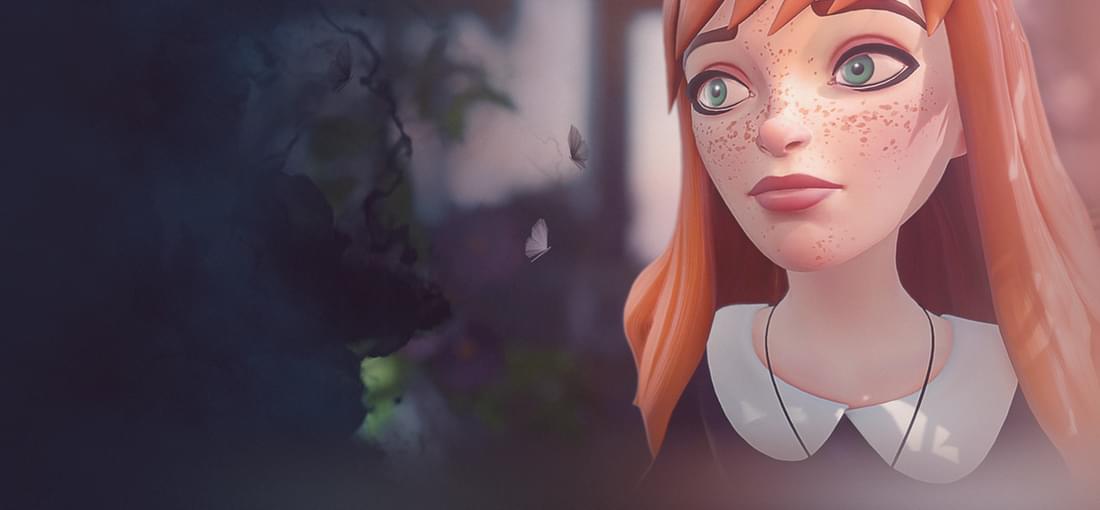
"If this is a dream... I need to eat less cheese." First paragraph will be me venting: This game's controls and camera are so wonky I had to stop playing at times when I started getting queasy. The interactive hotspots are awkward enough that hitting them is harder than the game's actual puzzles. On my second playthrough, some piece of terrain failed to load causing me to fall through the map; even rebooting didn't fix it, and since there's only one checkpoint save and no chapter select, that meant starting all over. Which is a tad annoying, not least since even running after her brother, Scarlett sneaks about on tiptoe, and control is frequently taken away from you when the game thinks Scarlett needs to look at or comment on something. Oh, and the game writes hundreds of megs of debug logs to AppData, so if you're from the era of small boot SSDs, enjoy. That said, this game scores when it comes to story and characters. Portrayal of Scarlett is serviceable, even if she remains something of a flat character on the whole- and did we wear jeans slit at the knees back in the 90s? Finn, though, feels real, round and tragically awesome, and both of their voice actors, Rosie Jones and Kit Connor, are the life and blood of this game, complete with their British accents. The richly detailed levels do well at the daunting task of staging two creative kids, Finn's quirky papermache art represented especially well. The story is real, honest, with no false pathos even in its tearjerker moments, so if you're into narrative games, chances are these 2-3 hours will work for you. It feels wrong giving this three stars. With its colourful surrealism and tender profundity, I feel this game might be a good fit for people Scarlett's age when they're ready to explore things like loss, selfhood, family. However, there are smoother and more accomplished narrative PC games out there. Perhaps get it on a console? Or buy it and then watch a Let's Play?
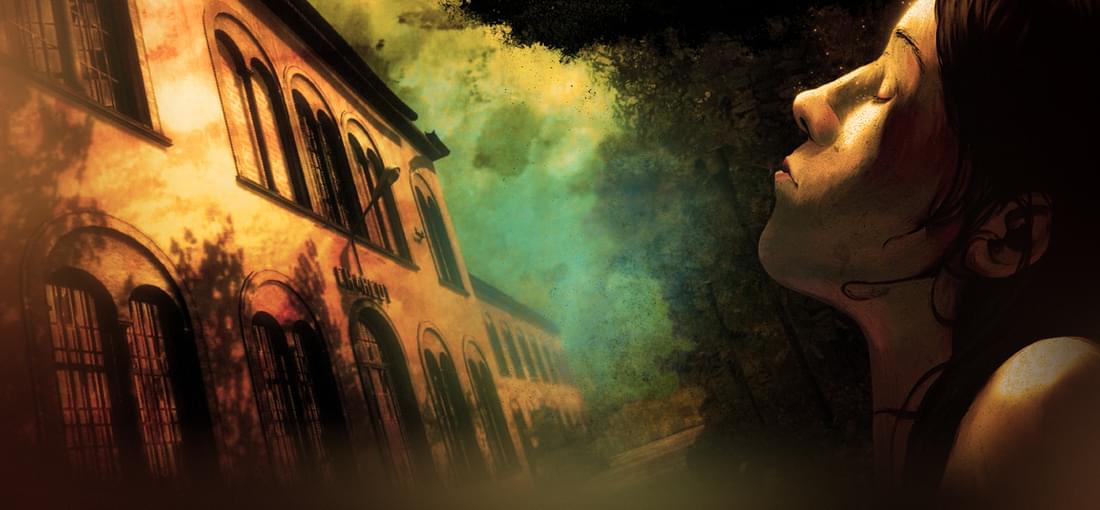
"Calm down; you must be calm; don't get agitated; we'll make you calm down! Is that the only thing that matters? Is tranquility worth the price of not living?" In TTOL, you retrace the steps of Renée, an intelligent, imaginative, mentally ill young woman, as she is systematically reduced to a purposeless animal that needs to be clothed and fed, in a Tuscan psychiatric hospital between 1939 and 1944. Not out of malice, mind you, though contemporary takes on immoral behaviour may sometimes feel like it, but because it was the one thing they knew how to do. While her case is fictional, the game painstakingly recreates the 2016 lost place version of a real hospital where similar stories actually happened. Guided by an inner monologue kind of voice, you collect documents: historic photos of the real place; a doctor's diary outlining the difficulties they faced; and Renée's patient file as well as more or less developed documents on other cases. In addition to distorted first-person flashbacks, memories are presented as animated drawings, and in Renée's heart-rending childhood diary (originally a free DLC). The 2D art alone is enough to make this game unforgettable. TTOL has some issues. Pacing is one of them- long walks through a non-interactive outdoors are followed by frantically collecting childhood drawings in a labyrinth while an invisible timer runs down. Menus periodically become inaccessible. The dates on several found documents, especially from 1940, seem contradictory. At times, the game resorts to horror tropes like doors slamming shut or ghostly arms groping at you. Also, it bows to video game conventions in allowing for some player choice- out of place in a story defined by everyone's lack of agency. But what gem doesn't have edges? I played this three times in a row and still find it hard to get enough distance for a rational review. It's one hell of a ride. If you feel games like The Cat Lady or Gone Home, you should definitely play this.

This is a collection of ten games made mostly for game jams between 2015 and 2021, each with concept art and video commentary, where the developers also talk about topics like their creative process, game development and mental health, representation, or being creative in a language not their own (some games might have profited from an extra round of proofreading for this release). All is wrapped in a pretty launcher, plus you get two hours worth of atmospheric soundtracks. My favourite game has to be Behind Every Great One, to me most painfully real narrative experience since Actual Sunlight (2013) and actually superior in how gameplay and thematic content reinforce each other. This also applies to De tres al cuarto, the game exclusive to the collection, and, far from a mere bonus item, one of the best games in there. Rendering the struggle for inspiration and audience approval as a deckbuilding game is just brilliant. As a reflection on the challenges and rewards of the self-employed creative life, it neatly wraps up the collection- the comedians doing eleven short gigs, each time trying to improve their routine... It also continues ongoing themes like including Spanish local colour in the games, plus it tells an intimate, beautifully realistic love story, so what's not to like? Eternal Home Floristry is an extremely well-rounded and genuinely touching game about a hitman going into flower arrangement. Engolasters January 2021 and especially Dear Substance of Kin show how small games can convey the notion of a large and profound fictional world. Zen and the Art of Transhumanism and Supercontinent Ltd provide valuable insight into the origins of The Red Strings Club (2018), Deconstructeam's most recent commercial game. I'm giving 5 stars with the understanding that the whole is greater than its parts here. Each game has something unique to commend it, but what makes this so satisfying is the opportunity to experience them all in a guided tour.
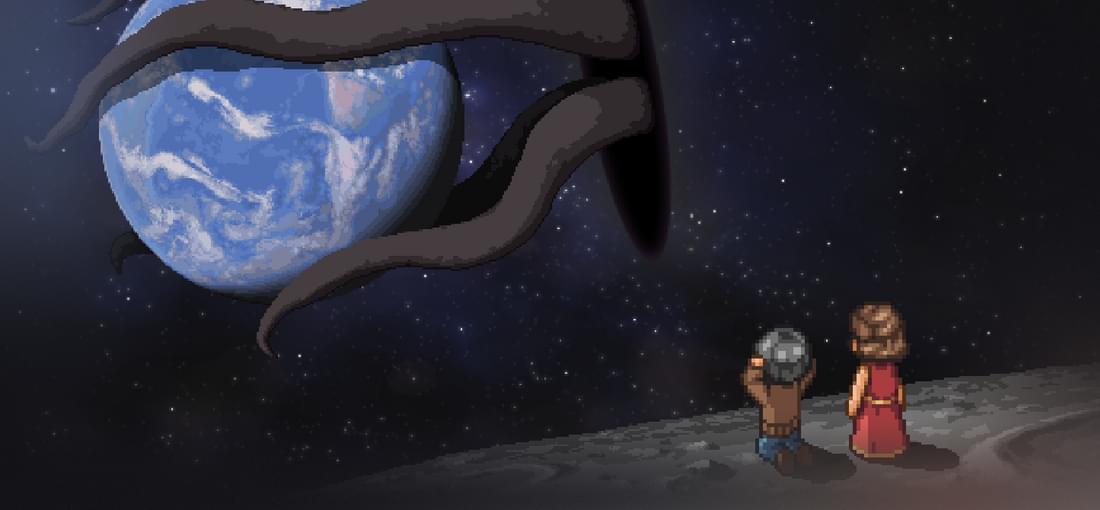
The third main game set in the To The Moon universe, I feel that IF is both a successful continuation, and to an extent a welcome reset of the series, ten years after the first title. Finding Paradise, for all its virtues, suffered a bit from Second Game Syndrome- trying to build on the astounding success that was TTM while at the same time trying to step things up a notch, more narrative acrobatics, more self-conscious video game action. (Unpopular opinion, I know.) IF on the other hand feels like a mature and confident return to simplicity, while at the same time bravely charting new territory: No centre-stage end-of-life patient destined to provide tearjerker moments, but a bunch of random characters mysteriously murdered - over and over again. It's not a different game altogether - the lovingly crafted RPG maker graphics and perfectly timed atmospheric soundtrack are there, and Act 2 in particular feels familiar, with Quincy collecting memory links in order to progress. Gameplay is pared down to a bare minimum even by the standard of the series, but I trust nobody plays these games for their mechanics, so IF really just focuses on the core experience. As others have stated before, the absence of the trademark back and forth between Neil and Eva is another departure, so Freebird's tagline "Ruining sentimental moments, one badly timed joke after another." applies here only so much- but honestly, it's been ten years since TTM. Things change. Beyond this, it's hard to go into detail without massive spoilers. The emotional impact of the game is sometimes direct, some of it unfolds when you think about it more. If you have some time left after the 3-4 hour experience, you're invited to ponder some of the ethical and philosophical points the game touches upon (lightly): Is the best life one that is free of strife? Are there different levels of nothingness? And how do you know yours is really the best rice in the world?
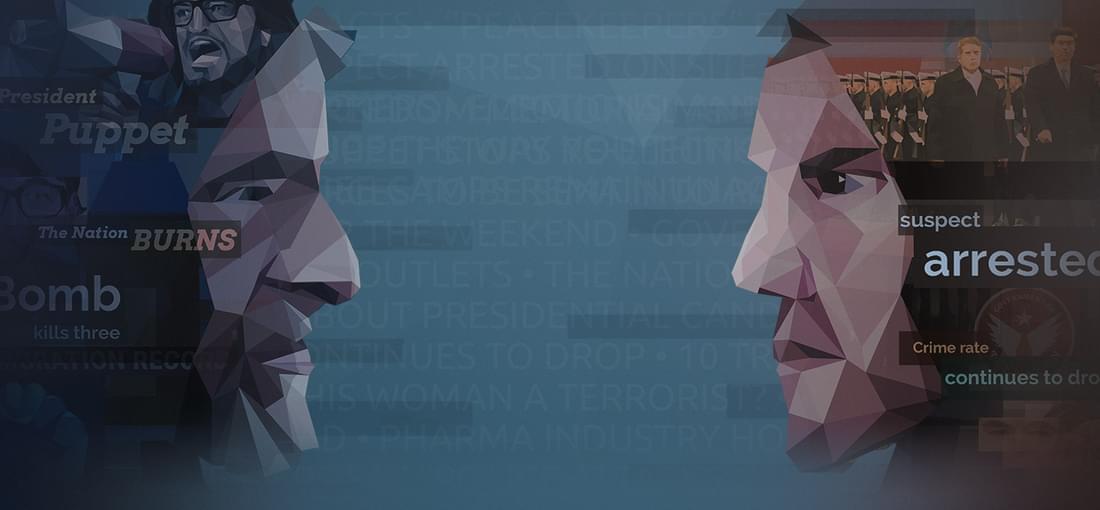
Thematically, O:IS is an update on its predecessor: Where the first game was about the post-9/11 surveillance culture many of us associate with the name Snowden, the second incorporates the European migrant crisis, and first and foremost the perceived rise of misinformation in a world where everybody has instant access to unqualified data and opinion broadcast by, well, anyone. Consistent with these themes, the focus of O:IS shifts away from the essentially private and easy to empathise with individuals encountered in the first title: Your main antagonist may be a traumatised refugee in a wheelchair, but by his social media presence he's also a major force in the politics of two countries. The characters by his side feel a bit perfunctory, but that's because you don't really investigate them- you just use the juicy bits you find to shape public opinion. Players of the first game will feel right at home. Phone calls have voice acting now, but the interface has mostly remained its familiar self, calm blue controls and tessellated pictures. Time is limited now and used up by uploads, so you're meant to be smart about them, though in practice I never felt limited. The last day gives you a new tool, the Influencer, which twists datachuncks you upload into hashtag friendly smear campaigns to spread across social media, ruining you opponent's credibility. I felt the Influencer took away from the nuance, and also the realism of the Orwell games: Apparently people who read blogs are all partisan to the point of being biploar. A clever hashtag can turn their opinion into its opposite within an hour. If you're a blogger, your wife's personal life can stop a civil war. There's no deftness to it, just aim below the belt and win. I expect real manipulation to be more subtle. Where O surprised me with the amount of player choice, O:IS at times feels like playing the blueprint of an over the top conspiracy theory. Still a good game, but not entirely as convincing as the first.
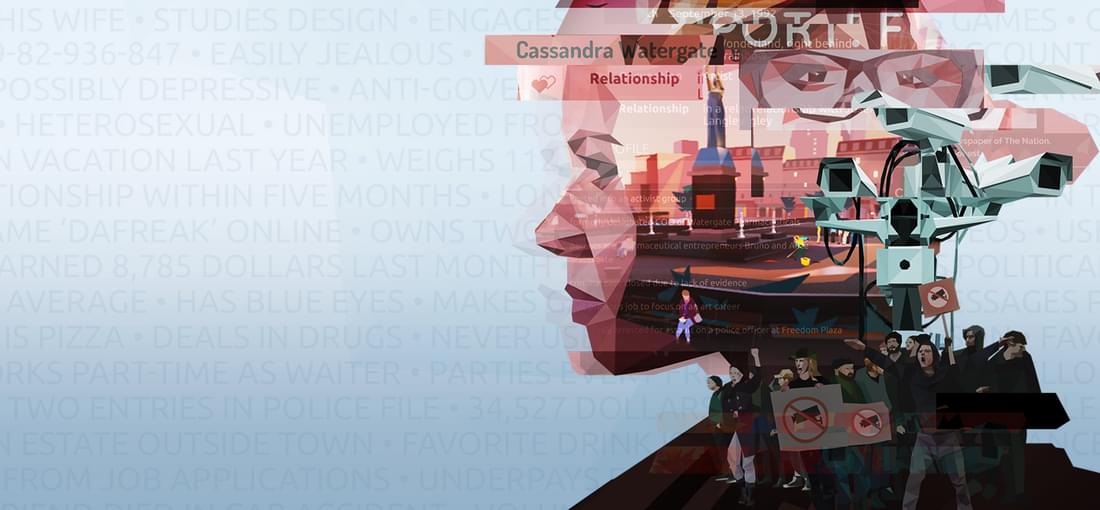
A bomb goes off in the middle of down-town. Surveillance cameras have identified a person with a police record at the site moments before. She attacked a policeman at a protest a while back, and now she was filmed at the site of a terrorist bombing. Coincidence? You browse her homepage, find her chat handle. Moments later, you watch a chat between her and her lover. It's inconsequential, but it gives you a few chunks of data to upload, unlocking more items to sift through. Destined for a cushy job in her family's business empire, she dyed her hair blue and became an artist. Radical change, no? Let's check her social media to see what happened. And oh dear, she's on antidepressants! Do I need to upload that? Your job in Orwell is as menial as it is exhausting: Sift through mountains of more or less private data and select the relevant bits to bring to the attention of law enforcement. You're the human component required by some ethics codex. But how do you know what's pertinent? Being in possession of all the data is not actually the same as being omniscient. Her medical records show an old leg injury. His fishing buddies say he's gay. Does the system need to know that? Even to establish which data is relevant to your case, you need to survey a ton that isn't. An ethical mass surveillance system would be one that you couldn't use. I like how the basic conundrum is mirrored in the game mechanics: We do want to fight crime, you do want to beat the game, so you need to upload something. But with all "the signals, all the time" at your fingertips, does your selecting uncover the truth or create it? A police investigation is perhaps the only place where you don't want player choice to change the outcome, but there's surprisingly much of that in Orwell. You sit in front of the calm blue GUI, dragging and dropping snippets. Every now and again your adviser pops up saying good job because they arrested someone based on your research. Should you care?
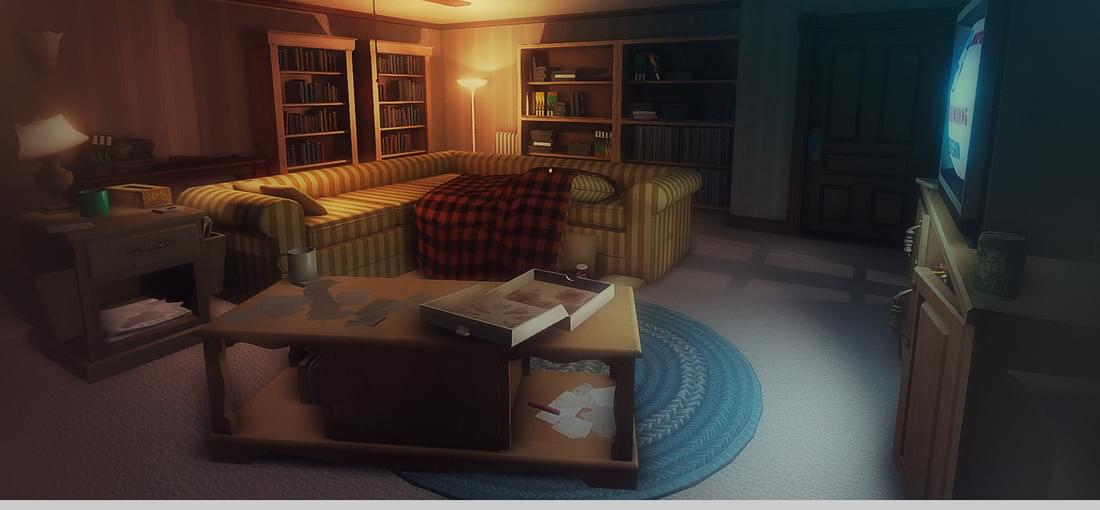
Remember 2013, when people were still arguing if interactive narrative experiences were allowed to call themselves games? Remember those transformative last minutes of BioShock 2's Minerva's Den DLC (2010), when guns and plasmids were finally silent and Subject Sigma quietly walked through an accidental museum of his past? Members of the same team went on to create Gone Home, an early entry into the genre sometimes disparagingly called walking simulator. Responding to the often searing criticism here on GOG, I suppose it's fair to say that Gone Home isn't entirely as rich as later games like Firewatch or What Remains of Edith Finch (both 2017). But is it a worse game? One of the top reviews chides GH for its "ridiculous teen-age love-story" - not technically wrong perhaps, as teenage love stories are usually ridiculous - but when was the last time you had a ridiculous teenage love story told to you like this, through the eyes of a relative wandering through a deserted house, documents, memorabilia and audio cassettes affording a glimpse into everyone's lives? Another top review awards the game one star because Sam's actions were "selfish, misguided, immature, and unrealistic" and her relationship with the player character "was also immature and unhealthy." If the teenage main character's immaturity affects you enough to hate the game, the game must have done a pretty good job at characterisation, no? To me, this is the point of these games - exploring a world that isn't about you and doesn't necessarily need you, but allows you to learn and empathise with the people inhabiting it. Even with a more highly rated game like Firewatch, what do you remember - the convoluted and implausible main story, or Henry and Delilah? GH is a short experience and doesn't technically have a lot of replay value - still I've found myself returning to it several times over the years, with different thoughts and feelings as I myself grew older. I like it.
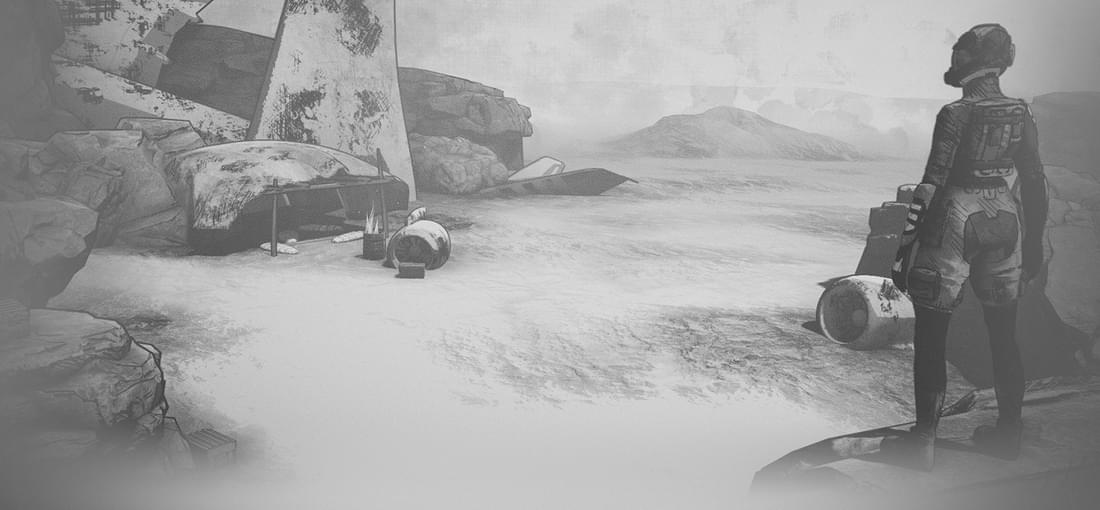
A volcanic event has turned the world into a desert of ash and ice; what's left of mankind is confined to high-tech domes; yours is failing; you're the third and last squad sent out to find a new home for your people. Your group of four offer choices for which paths to take, what to do with old gear and ruins you find, and how to approach wild beasts as well as fellow humans. To keep them going, you gather resources and make camp to manage their health, energy, warmth, food, and hope. This game is all about branching narratives. As you progress through increasingly inhospitable landscapes, you really navigate a tree of named events like The Vulture or The Button. Your decisions influence stats and resources as well as the direction you take. Many of them also have more subtle repercussions, for example on your relations with the tribal Outsiders. If squad members die, so dwindle your choices, which matters most in the late game when you choose what's left of 34 possible endings. There's lore to be found as well, and fireside convos help you get to know your squad. Bleak b/w landscapes, the camera following you on fixed paths, a title introducing each encounter - Ashwalkers is like walking through an art gallery, pausing at every painting. This is also my biggest gripe: Run after run, you watch your squad trudge along, click through the same camera pans and slowly appearing bits of text. This is especially aggravating since most of the endings branch off in the last minutes of the game. Granted, you can start in a custom starting zone, but I'd rather play through the whole experience with less, well, waiting. From the 4th run or so, I watched videos on the other screen while my squad trudged on. That's a shame, as the game's stylised visuals and hypnotic music can make for an almost meditative experience. I understand it's deliberate and fits the story, but with choices and endings being a major selling point, the game's slow pace still seems to weigh it down.
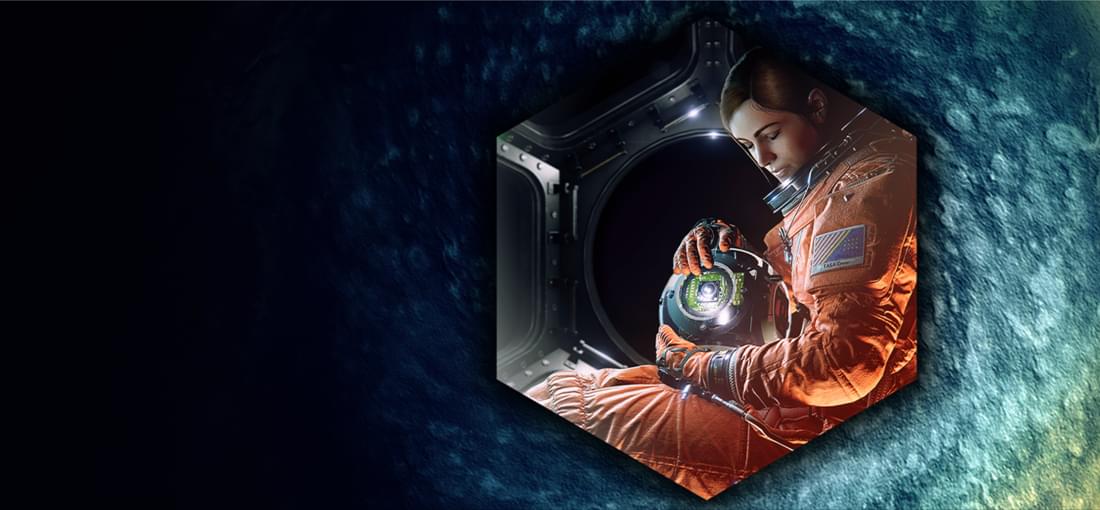
I played this two times in a row, and there wasn't a dull minute to it. The main selling point is definitely the atmosphere, especially Omar Khan's audio and music and Kezia Burrows's up close and nuanced voice portrayal of Dr Emma Fisher. Great visuals too. The gameplay is good in that it doesn't get in your way too much (one non-retriable timed puzzle early on, little 3D pixel hunting). The puzzles, which have you interface with various electronic systems and devices, highlight the story's human moments and vice versa, so you get that feeling of partaking in something real and epic sometimes. Alternating between the methodical pan-and-zoom of the station cameras and the more immersive first-person view from the microgravity guidance spheres (floating balls with a flashlight and navigational thrusters) makes for a nicely varied experience. Exploration is rewarded in that collecting enough data nodes on a topic allows you to literally draw connections - this felt very satisfying, not least in the way it's displayed. Unless you plan on 100%ing that aspect, the replay value is that of watching the same film twice (which is not necessarily zero). I felt like I encountered one very minor bug in 1.17 where you can't progress in the story if you choose that moment to collect a particular audio log, but it's a matter of minutes replaying that passage- but that was it. If you like sci-fi thrillers and enjoy story-based games even when they have no player choice, these are six hours you won't regret.